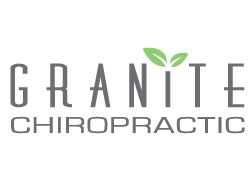Demystifying the Vitamin Aisle
Dr. Sarah Leahy Granite
For many, navigating the vitamin aisle of the local supermarket or supplement store can be as confusing as advanced calculus. Is it better to take just B12, or a B complex vitamin? What is an Omega-3 fatty acid, and how much should I take? Do I really need a multi-vitamin, and how do I know which one to choose? These questions, among a slew of others, are ones I found my pre-Nutritionist self asking as I stared blankly into a sea of supplements.
As my education as a Clinical Nutritionist grew, so did my belief that supplementation is essential to maintaining overall health. I’ve narrowed my reasoning for this stance down to three key points. The first is that, in today’s fast-paced world, busy schedules often equal a sub-optimal diet. Many of us find ourselves without the time or the know-how to prepare foods such as kale and beets at the end of a long day. If we are not eating the nutrient-rich foods that our bodies require to keep our systems running smoothly, the body will adapt for a period, but will eventually start to break down, causing health problems to arise.
The second reason for supporting supplementation is that, though vitamin-packed 100 years ago, the foods of today do not contain the same nutritional value. The nutrition received by plants, and therefore also by the animals that eat those plants, starts in the soil. The overuse of that soil results in a decreased nutrient content in the food supply. Broccoli, for example, was measured by the U.S. Department of Agriculture (USDA) in 1950 to contain 12.9 milligrams of calcium per gram of dry weight, and in 2003 was measured at only 4.4mg/g. That means that to get the same amount of calcium from broccoli today as you would have in 1950, you would have to consume three times as much. That’s a lot of broccoli.
According to the Center for Disease Control and Prevention (CDC), half of the US population is now on at least one prescription medication. Prescription medications often cause vitamin and mineral deficiencies, which is my third reason for supporting supplementation. Statin drugs and beta blockers, for example, which are often prescribed to patients to lower cholesterol and prevent heart disease, also block production of Coenzyme Q10 (CoQ10), which helps to produce energy in the body. Without CoQ10, organs such as the heart, which needs lots of energy because it never rests, can become damaged. Many doctors will now prescribe a CoQ10 supplement along with a statin drug to prevent further damage to their already ailing patients.
Now that you know the importance of supplementation, how do you know which vitamins to choose? The most important thing to remember when purchasing vitamins is why we’re taking them in the first place – to take the place of foods with low nutrient value or foods that we have left out of our diets completely. Humans were meant to receive nutrition in the form of food, so when looking for supplements, make sure that the words “Whole Food Based” appear on the label. If not, your supplements are synthetic (concocted in a lab somewhere), and you are not able to absorb them. This is both sad news for both your body and your wallet.




